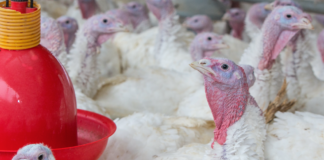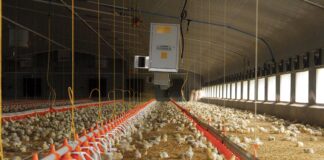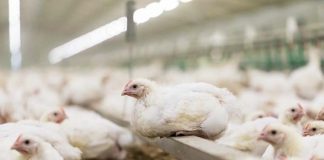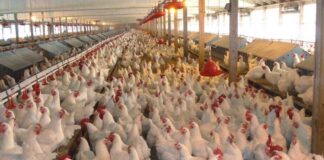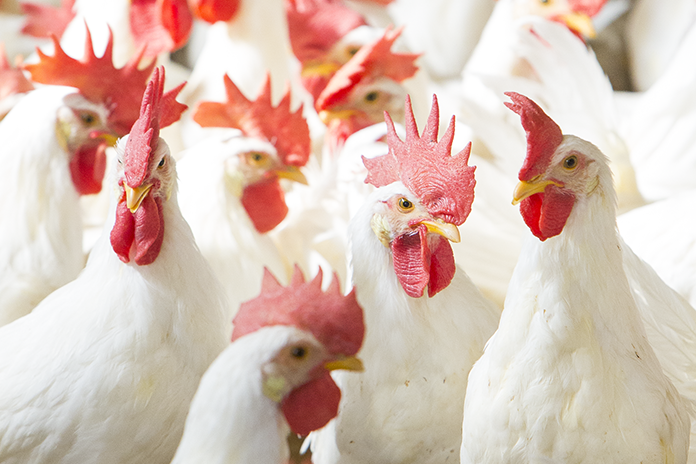
Effects of cottonseed meal supplemented with composite microbial enzymes on broiler chickens.
Soybean meal (SBM) is the premier plant protein source used by the poultry industry around the world. The price of soybean meal fluctuates but is generally high, particularly in importing countries. There are other vegetable protein sources of local importance around the world, such as canola seed meal (CM) and cottonseed meal (CSM). Some of these alternative sources are comparable to SBM in nutritive value but contain factors that reduce their quality for birds.
CSM contains approximately 222.0 to 560.2 g crude protein per kg and 7.4 to 11.99 MJ metabolisable energy per kg. The use of CSM in poultry diets is limited by the presence of some anti-nutritional factors. Various efforts have been made to increase the incorporation of CSM in broiler diets including physical treatments and supplementation with microbial enzymes. A new composite xylanase and beta-glucanase product (Danisco Animal Nutrition, Marlborough, UK), which was developed for use on fibrous vegetable protein sources such as CSM, was tested in the current study.
In this study, the performance and uniformity of broiler chickens, pellet durability and nutrient digestibility were studied from hatch to 35d of age when fed isocaloric and isonitrogenous diets containing three levels of CSM (None), Low (5, 10, 15%) or High (6, 12, 18%) in the starter, grower, and finisher phases, respectively). The diets were supplemented with three levels of the enzyme (0, 100, or 150 mg/kg).
Pellet durability index (PDI) linearly increased with increasing levels of CSM, with PDI values 0.88, 0.91, 0.91, 0.92 and 0.94 for diets containing 0, 10, 12, 15 and 18 % CSM, respectively. Each of the nine dietary treatments was randomly assigned to 6 replicates, with 10 birds per replicate.
Feed intake (FI) results obtained at d35 but not at the starter and grower phases decreased (P < 0.05) linearly with increase in enzyme level. During 1-10 and 1-24 d, birds fed CSM-supplemented with either 100 or 150 mg/kg microbial enzyme gained more (P < 0.05) weight than those grown without the microbial enzyme, with the heaviest birds observed in the low CSM group supplemented with 100 mg/kg enzyme.
The enzyme supplement decreased (P < 0.01) the FCR at 1-10, 1-24d and 1-35 d, with both levels of the enzyme producing about the same results. There was no significant difference (P > 0.05) in flock uniformity between treatments, with all groups recording 92.0 % BW uniformity. The microbial enzyme improved (P < 0.05) apparent ileal crude protein digestibility. High inclusion levels of CSM decreased (P < 0.05) the digestibility of starch, but this was improved (P < 0.05) by the enzyme supplement. Gross energy digestibility was not affected (P > 0.05) by CSM levels or the enzyme.
There was an interaction between CSM and microbial enzyme on the digestibility of starch. It can be concluded that increasing dietary CSM levels to 18% does not adversely affect broiler performance.
Furthermore, enzyme inclusion significantly improved FCR throughout the production cycle. Nutrient digestibility decreased with increasing dietary CSM level but this was improved or restored by supplementation with the test enzyme product.
From the Proceedings of the Australian Poultry Science Symposium










